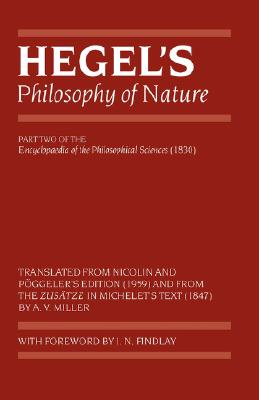Excerpt:
[…] If we do want to determine what the Philosophy of Nature is, our best method is to separate it off from the subject matter with which it is contrasted; for all determining requires two terms. In the first place, we find the Philosophy of Nature in a peculiar relationship to natural science in general, to physics, natural history, and physiology; it is itself physics, but rational physics. It is at this point that we have to grasp what the Philosophy of Nature is and, in particular, to determine its relationship to physics. In doing so, one may imagine that this contrast between natural science and the Philosophy of Nature is something new. The Philosophy of Nature may perhaps be regarded prima facie as a new science; this is certainly correct in one sense, but in another sense it is not. For it is ancient, as ancient as any study of Nature at all; it is not distinct from the latter and it is, in fact, older than physics; Aristotelian physics, for example, is far more a Philosophy of Nature than it is physics. It is only in modern times that the two have been separated[…] it must be noted, right from the start, that the two do not lie so far apart as is at first assumed. Physics and natural history are called empirical sciences par excellence, and they profess to belong entirely to the sphere of perception and experience, and in this way to be opposed to the Philosophy of Nature, i.e. to a knowledge of Nature from thought. The fact is, however, that the principal charge to be brought against physics is that it contains much more thought than it admits and is aware of, and that it is better than it supposes itself to be; or if, perhaps, all thought in physics is to be counted a defect, then it is worse than it supposes itself to be. Physics and the Philosophy of Nature, therefore, are not distinguished from each other as perception and thought, but only by the kind and manner of their thought; they are both a thinking apprehension of Nature.
